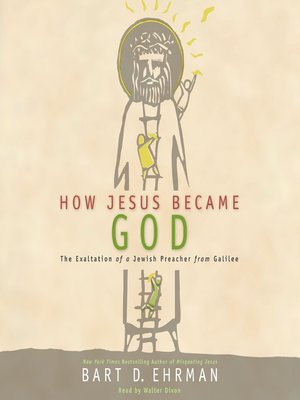

That simply doesn't work as a model for how early (Jewish) Christians would have viewed Jesus. Again, Ehrman is using what is, at best, a condemned and fringe activity (angel worship) as characteristic of first-century Judaism.

Yes, you don't get laws prohibiting activities that are never performed but at the same time you can't use laws prohibiting activities as evidence that those activities actually represent a religion's views! It would be like using the Ten Commandments (which are filled with prohibitions) to argue that ancient Judaism was a religion that embraced idolatry, Sabbath-breaking, adultery, murder, coveting, and so on. You don't get laws prohibiting activities that are never performed" (pp.54-55, emphasis his). Thick with angels, cosmic powers, and numberless semi-divinities.Ehrman attempts to overcome these clear restrictions on angel worship by flipping them around to his advantage: "We know that some Jews thought that it was right to worship angels in no small part because a number of our surviving texts insist that it not be done. ‘son’? Bart Ehrman tells this story, introducing the reader to a Jewish world “How did ancient monotheism allow the One God to have a Written for secular historians of religion and believers alike, How Jesus Became God will engage anyone interested in the historical developments that led to the affirmation at the heart of Christianity: Jesus was, and is, God. And what they meant by that was not at all what people mean today. Only when some of Jesus’s followers had visions of him after his death-alive again-did anyone come to think that he, the prophet from Galilee, had become God. But how did he move from being a Jewish prophet to being God? In a book that took eight years to research and write, Ehrman sketches Jesus’s transformation from a human prophet to the Son of God exalted to divine status at his resurrection. How Jesus Became God tells the story of an idea that shaped Christianity, and of the evolution of a belief that looked very different in the fourth century than it did in the first.Ī master explainer of Christian history, texts, and traditions, Ehrman reveals how an apocalyptic prophet from the backwaters of rural Galilee crucified for crimes against the state came to be thought of as equal with the one God Almighty, Creator of all things.

But this is not what the original disciples believed during Jesus’s lifetime-and it is not what Jesus claimed about himself. The claim at the heart of the Christian faith is that Jesus of Nazareth was, and is, God. New York Times bestselling author and Bible expert Bart Ehrman reveals how Jesus’s divinity became dogma in the first few centuries of the early church.


 0 kommentar(er)
0 kommentar(er)
